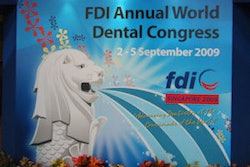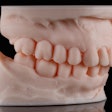
Editor's note: Allan Farman's column, Talking Pictures, appears regularly on the DrBicuspid.com advice and opinion page, Second Opinion.
At the 2009 meeting of the Kentucky Dental Association, George Kushner, D.M.D., M.D., an oral and maxillofacial surgeon from Louisville, gave several presentations that focused on complications in dentistry.
He noted that complications can happen for any practitioner working on a patient and do not necessarily mean a failure to reach the generally accepted standard of care. He also mentioned that one can learn from failures, perhaps more so than from successes. In fact, it is sad that most people presenting continuing education tend to harp upon their greatest successes rather than the lessons gleaned from their failures.
Litigation most likely follows failure when dentists fail to obtain informed consent, fail to document, fail to communicate with the patient, or fail to read and interpret radiographs. The majority of cases presented by Dr. Kushner were principally documented by radiographs, and they included examples in which there could be no defense. One was a three-unit bridge balanced on two abutments while the missing tooth was also replaced by an implant -- that failed. It is usual to replace a missing tooth either by a fixed bridge or an implant but not by both.
He also presented cases of implants breaching the mandibular, leading to paresthesia that could have been avoided by appropriate diagnostic imaging and measurement prior to the procedure. Several cases of mandibular fracture during or following tooth extraction were also shown, but these can be unavoidable; hence the need for appropriate informed consent, documentation (including radiographs), and communication with the patient. As Dr. Kushner noted, failure in any of these can lead to very large legal settlement.
I concur with this. Perhaps not surprisingly, given my specialty, most of the cases in which I have acted as an expert witness have rested on interpretation of radiographs. I can state categorically that you should look at every radiograph you take in your office and think carefully about its quality in terms of whether you would like to have its quality described by an expert witness (for the other side) in a court of law. Your skills as a professional are likely to be judged on this graphic evidence.
Remember, complications can happen during any procedure. Consent, documentation, and communication are your greatest defense on such occasions.
The comments and observations expressed herein do not necessarily reflect the opinions of DrBicuspid.com, nor should they be construed as an endorsement or admonishment of any particular idea, vendor, or organization.
Copyright © 2009 DrBicuspid.com



















